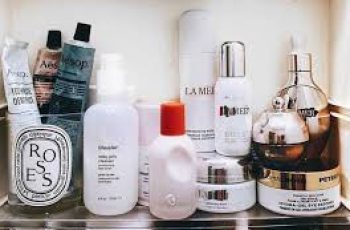
Comprehensive Review: Curology, Proven, Skinceuticals, and the Rise of Personalized Skin Care Routines
In today’s booming beauty and wellness industry, the concept of “personalized skincare” has evolved into a dominant trend, appealing to consumers who are increasingly aware of the uniqueness of their skin concerns and goals. Major skincare brands such as Curology, Proven, and Skinceuticals have stepped up with offerings that promise customized regimens tailored to individual skin needs. But how effective are these personalized skincare routines? More importantly, how can consumers determine which brand truly understands their skin?
Before diving into any skincare product or committing to a brand’s system, it is essential to know your skin type. A quick, scientifically valid skin type quiz—taking no more than five minutes—can offer valuable insights. Tools like the Baumann Skin Type Indicator (BSTI) help users understand which products align best with their skin’s physiology. This review aims to critically examine the personalization claims and product efficacy of Curology, Proven, and Skinceuticals based on their suitability for different Baumann Skin Types.
Understanding the Need for Personalization in Skincare
Skin is the body’s largest organ, and like any organ, it has unique needs influenced by factors such as genetics, environment, diet, age, and lifestyle. While traditional skincare products often adopt a one-size-fits-all approach, modern consumers demand more tailored solutions. Personalized skincare aims to fulfill that need by taking an individual’s skin profile into account, including sensitivities, pigmentation, hydration levels, and conditions like acne or rosacea.
However, not all personalization methods are equal. Some brands base their personalization on sophisticated diagnostic tools, while others rely on subjective customer input, which can lead to incorrect product recommendations.
Curology: A Custom Approach to Acne Treatment
Brand Background
Curology was launched in 2014 by Dr. David Lortscher, a board-certified dermatologist. The brand’s main appeal lies in its telemedicine-style consultation service, through which customers can get prescription-strength formulations mailed directly to them. Curology emphasizes treating acne, using a blend of active ingredients that may include:
Tretinoin: A potent retinoid used to treat acne and signs of aging
Azelaic acid: Known for its anti-inflammatory and brightening properties
Niacinamide: A form of Vitamin B3 that helps with redness and sebum regulation
Tranexamic acid: Used to reduce hyperpigmentation
What Curology Does Well
Curology excels in targeting acne-prone, oily skin with minimal sensitivity. The strength of its formulations—often involving prescription-grade ingredients—can yield noticeable improvements for those struggling with persistent acne or post-acne hyperpigmentation.
The brand also offers users the chance to consult with licensed dermatology providers, an important plus for those who may not have access to a dermatologist locally.
Where Curology Falls Short
Despite its personalized image, Curology’s formulations are relatively standardized. Many users with dry, sensitive, or aging skin report irritation from ingredients like tretinoin or the foaming cleansers included in the regimen. This suggests that the platform may not adequately accommodate all Baumann Skin Types, particularly those with sensitive, dry, or inflammation-prone skin (such as Types 1, 2, or 4).
Curology’s platform is also somewhat restrictive in terms of product integration. Users are expected to use the Curology system exclusively, which limits the flexibility to incorporate effective products from other trusted brands. If you’re someone who likes to build a routine from multiple lines—perhaps combining a gentle cleanser from CeraVe with a serum from The Ordinary and a Curology treatment—this brand might not be the best fit.
Best Fit: Which Skin Types Should Consider Curology?
Baumann Skin Type 6 (Oily, Pigmented, Tolerant, Wrinkle-Prone): Ideal for acne and pigmentation concerns.
Baumann Skin Type 5 (Oily, Non-Pigmented, Tolerant, Wrinkle-Prone): Suitable if you tolerate active ingredients like tretinoin well.
Not Recommended For:
Dry, sensitive, redness-prone skin types
Individuals who prefer to mix and match skincare products across different brands
Proven Skincare: Big Data Meets Beauty
Brand Claims
Proven markets itself as a high-tech skincare solution, claiming to rely on one of the world’s most comprehensive skincare databases. The brand says it uses data analysis and artificial intelligence to create personalized skincare products based on over 20,000 ingredients and thousands of scientific studies.
Critical Analysis of Proven’s Personalization
Although Proven’s pitch sounds impressive, a closer look raises several concerns:
No Scientific Skin Type Diagnosis: Proven relies on a user-generated quiz that hasn’t been scientifically validated to accurately diagnose skin type. This leaves a lot of room for human error—most people incorrectly identify their own skin type.
Lack of Transparency: Proven does not disclose exact ingredients in the final product until after purchase. For individuals with sensitivities or allergies, this lack of clarity can be a serious issue.
Questionable Claims on Ingredient Effectiveness: Saying an ingredient is effective in isolation means little. The effectiveness of skincare depends on formulations, concentrations, delivery systems, and how ingredients interact with one another.
Inflexibility: Like Curology, Proven does not support the use of other brand products within its routines, which may deter consumers who prefer building multi-brand routines tailored to their specific needs.
Best Fit: Which Skin Types Should Try Proven?
Proven might be helpful for someone new to skincare who is looking for a basic, simplified system. It offers a cleaner, fragrance-free base that may suit people without severe acne, extreme dryness, or complicated skincare needs.
Not Recommended For:
Users seeking transparency in ingredient formulation
Those with sensitive skin or complex dermatologic conditions
Individuals who want to mix brands or use targeted treatments from other lines
Skinceuticals: Science-Driven Skincare Backed by Dermatologists
Brand Background
Skinceuticals was founded based on the research of Dr. Sheldon Pinnell, a well-respected dermatologist and former chairman of dermatology at Duke University. The brand is widely used in dermatology offices and medical spas for its clinical-grade formulations, particularly in anti-aging and antioxidant skincare.
The Strengths of Skinceuticals
Unlike Curology or Proven, Skinceuticals does not force users into a single product line or system. It offers a wide array of serums, moisturizers, sunscreens, and treatments that can be customized manually based on skin type and concerns. Key strengths include:
High-potency antioxidants (e.g., CE Ferulic, Phloretin CF)
Effective exfoliants and retinoids
Professional-grade peptides and hyaluronic acid serums
When combined with a reliable skin type assessment tool, like the Baumann Skin Type Quiz, Skinceuticals products can be strategically chosen to build a highly effective routine.
Areas for Improvement
Skinceuticals does offer a skin type quiz, but it lacks the scientific depth and precision of other diagnostic tools like BSTI. However, this can be remedied by taking a more accurate quiz elsewhere and using that information to build your routine.
Also, Skinceuticals’ price point is relatively high, making it less accessible for budget-conscious consumers.
Best Fit: Which Skin Types Should Try Skinceuticals?
All skin types—especially those seeking solutions for aging, hyperpigmentation, dryness, or sensitivity
Ideal for advanced users looking to fine-tune a routine based on clinical evidence
Not Recommended For:
Budget-conscious users
Beginners unfamiliar with how to build a routine from multiple products
Final Thoughts: Choosing the Right Personalized Skincare Brand
When it comes to choosing a personalized skincare brand, the most important step is understanding your true skin type, preferably using a medically-backed system like the Baumann Skin Type Indicator. Without this foundation, no amount of data science, dermatologist branding, or sleek marketing will guarantee results.
Brand Best For Major Drawbacks
Curology Acne-prone, oily, resilient skin Not ideal for sensitive or dry skin; lacks flexibility
Proven Skincare beginners seeking simplicity Lacks scientific skin typing and transparency
Skinceuticals All skin types; advanced, customizable care Higher cost; less accessible diagnostic tools
Ultimately, the best skincare routine is one that’s not only personalized, but also flexible, science-backed, and suitable for your individual skin needs.


